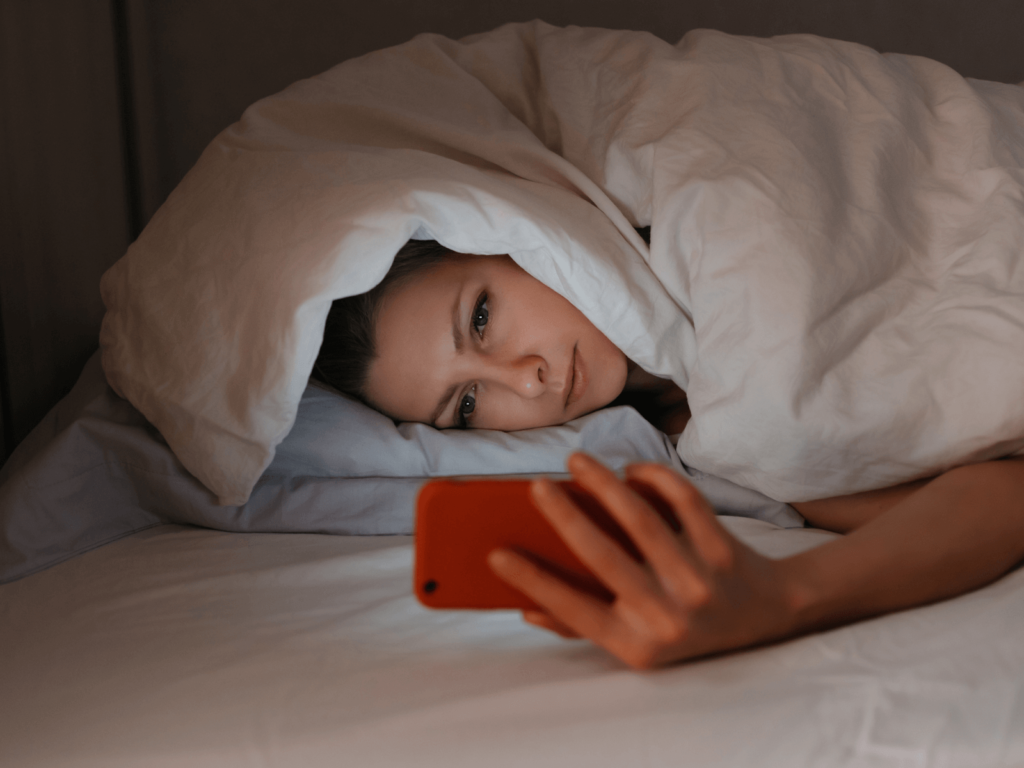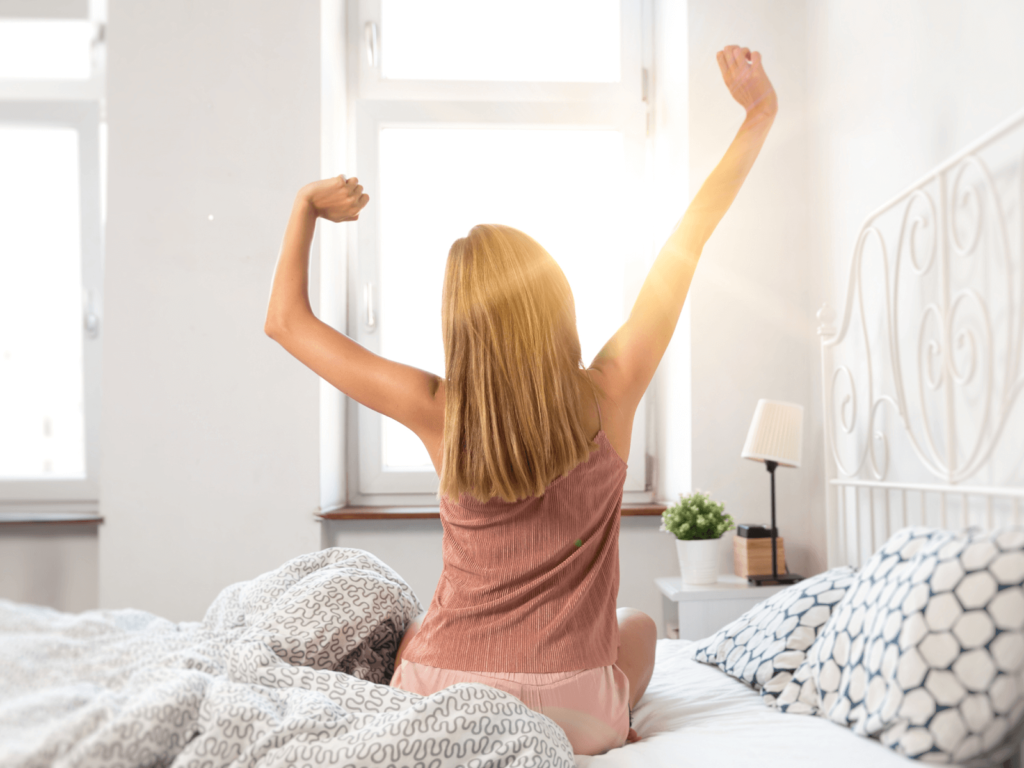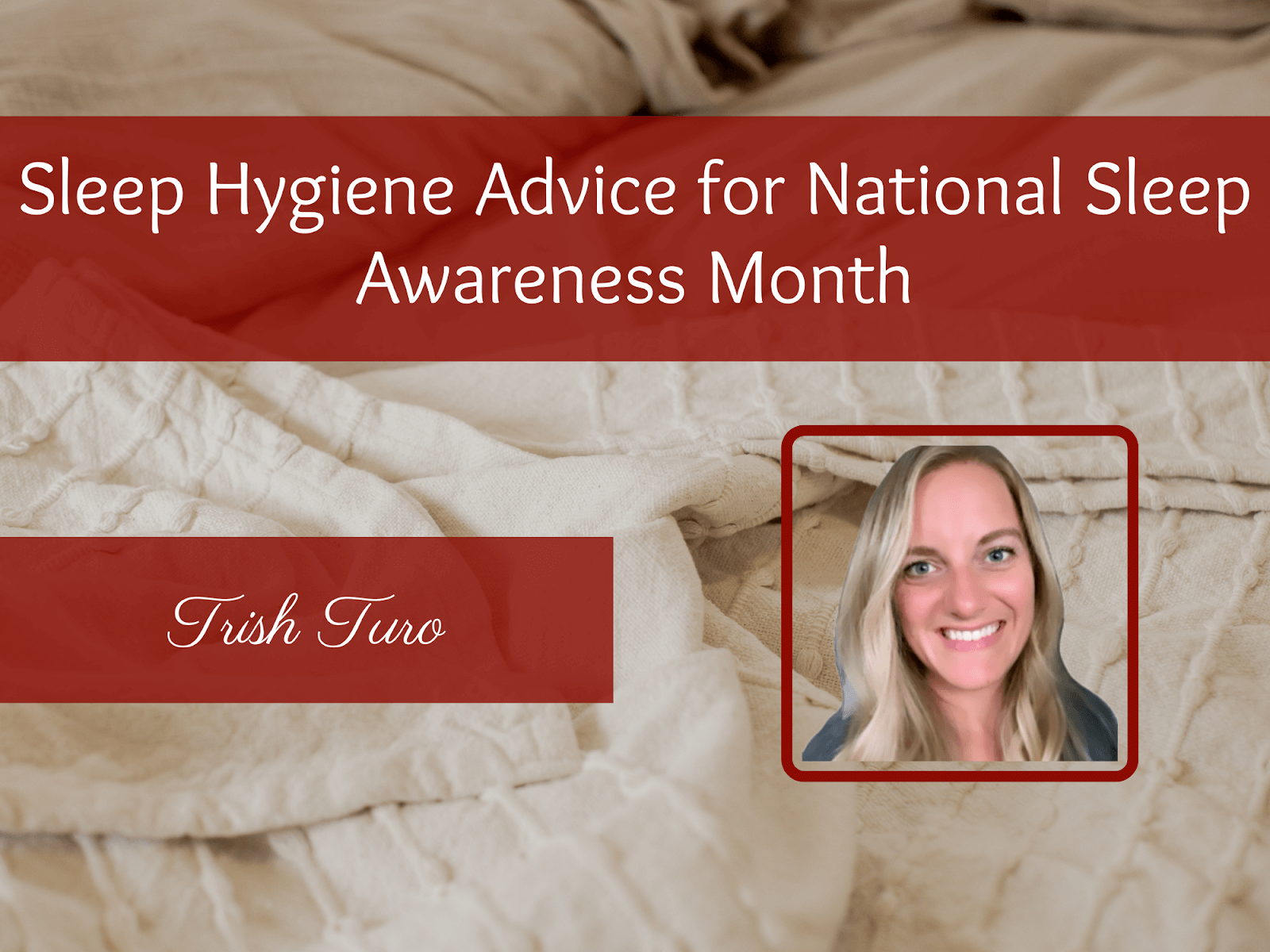According to the National Sleep Foundation’s 2020 Sleep in America survey, over 33% of adults aren’t getting enough sleep and feel tired during the day. There are many reasons as to why people aren’t getting enough sleep, when it’s crucial to your overall health to improve your sleep quality. So what is some sleep hygiene advice you can use to get better sleep?
We invited Trish Turo, National Board Certified Health and Wellness Coach, to contribute to this article. She works as the Head of Coaching for a brain health company that focuses on dementia prevention and brain support. Her work revolves around many aspects of wellness, including how sleep affects how our brains work, as well as our overall health and well-being.
We talked about how people can get better sleep naturally, why sleep is beneficial to our health, and how counseling can help with sleep loss.
Why is sleep beneficial?
People generally understand that sleep is beneficial. No one likes feeling tired throughout the day! But when sleep is constantly disrupted, it can become frustrating. We often hear questions from our clients like:
- Can sleep help anxiety symptoms?
- Can sleep help you lose weight?
- Can sleep lower blood pressure?
- Can sleep help with stress?
The answer is yes. Sleep can affect many aspects of your health. Trish says, “I don’t think people see, or truly understand the direct impact between high-quality sleep and how well the brain functions.”
One of the most common effects of low-quality sleep is poor decision-making. You make different decisions when you’re tired, such as eating food you normally wouldn’t. If you have a great routine with exercise and diet, lack of sleep can create challenges when sticking to your habits. You’re more likely to grab a high-sugar snack rather than something healthy.
Trish explains, “Sleep recharges your brain battery every night. We need to recharge the battery in a high-quality way and make sure the battery is ready to be used at an optimal level. When it comes to your sleep health, think about how this is impacting your brain and the way you function on a daily basis.” If you’re cranky and tired, you’re less likely to make thoughtful decisions.

Tips to Sleep Better Naturally
Medication is often the first thing suggested at a doctor’s office to help with lack of sleep. While medication can help some people, others want a more natural solution. Trish reminds us that sleep is connected to our overall mind-body connection. Sometimes sleep isn’t the main issue, but that’s what you’re trying to improve. It could be that you are struggling with managing your anxiety in a healthy way. Working on tools to reduce your anxiety can lead to better sleep. Your health is all connected.
The good news is you don’t have to overhaul your entire life. Determine what areas you have control over and can change and what areas you can’t. Trish shares this example: “We don’t have control over the amount of sleep we get once we fall asleep. We only have control over what we do up until we fall asleep. Do you go to bed at midnight? Do you go to bed at two o’clock in the morning? Set up a plan with one action step, and build on that to support your sleep habits.”
Getting hung up on the number of sleep hours someone gets can actually cause more anxiety. Try to shift the focus to what you can do. What is a good sleep hygiene routine up until you go to bed? Setting action steps helps bring the power back to you because you know what you can control.
The important thing to remember is one night of poor sleep won’t ruin your everyday life. Small changes can restore, repair, and make a difference. Trish adds, “Small changes over time will be the best way to tackle a challenging sleep experience or sleep routine.”
Sleep Starts with Waking Up
This seems a little counterintuitive, but Trish says sleep starts with your morning routine. Do you have solid habits of waking up around the same time each day? Staying consistent with your wake-up period is a great way to start improving your sleep.
Trish also suggests eating high-quality foods throughout the day and making sure your body is well-nourished. She comments, “A lot of people don’t think about how diet impacts your sleep, but if you’re not feeling good and your gut is out of whack, you’re less likely to sleep well.”
That goes for alcohol and substances, too. Try not to have those things right before bed. Trish explains, “If you’re going to have a drink, have it with a full meal instead of later in the evening.” We know alcohol impacts our sleep quality; having a drink earlier in the evening rather than right before bed won’t make as much of an impact.
Your daily activity levels can impact your sleep. If you’re sedentary for most of the day, you’re more likely to not get the quality sleep you need because your body hasn’t needed to perform. When you’re active throughout the day, by the time you go to bed, your brain is telling your body it’s time to rest. Trish relates, “Your body has also burned enough energy to work its way into a state of recovery and needing rest, which makes sleep much more accessible.”
Even social stimulation can affect your sleep. Everyone has their own needs for connection and engagement with others. Many of Trish’s clients express loneliness and disconnection from the world, and they’re up late at night on their phones looking for some sort of connection. Your digital habits play a key role in healthy habits around sleep. Are you engaging with people in meaningful ways that are filling your life with joy, or are you draining your energy connecting in ways that create anxiety and depression?
Remember, everything works together to function optimally! If one thing is out of alignment, it can impact everything else.

What if I’ve tried everything and still can’t sleep?
Some people probably have tried everything! But Trish points out that you may have tried everything at different stages in your life. She explains, “What may not have worked for you years ago might be something that could really stick right now because maybe you’ve made other helpful habits. If something you’ve tried before didn’t work, that doesn’t necessarily count it out as a strategy that might not work this time. Individuals can approach this with an attitude of curiosity and openness to discover what works for them right now.”
Here’s an example: When your kids were younger, you needed to have your phone with you at all times. It wasn’t possible to avoid blue light before bed. Now that they’re older, you can try putting your phone away before bed and reading instead.
Every stage in life has different needs, which will impact your sleep in various ways. New parents have a very different type of sleep than a college kid. Your sleep habits change based on the stage of life you’re in and the circumstances you’re experiencing at that point. Giving yourself compassion and grace to navigate through those challenging moments, can be a helpful strategy.
Sleep Counseling
When you feel like you’ve exhausted all your options, it might be time to seek counseling. Working with someone to come up with a plan or goal can put you on the right path to improving your sleep. A counselor or a health coach can be an accountability partner for your sleep goals. If you’re interested in working with one of our counselors or coaches to support you in your desire to have higher quality sleep, reach out to us today.
Trish leaves us with this: “While your sleep is extremely important, it’s not the end all be all to a healthy life. You can be struggling with sleep and working on all these different areas as well. There are still things you’re doing to have a high-quality life. It’s almost impossible to get perfect sleep, but it’s probable to work towards high-quality sleep. If you’re doing that, you’re doing the best you can. You’re doing the right thing.”

